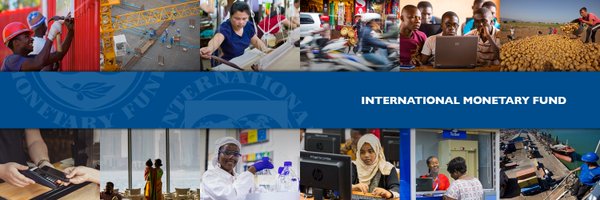 (AGENPARL) - Roma, 13 Maggio 2022
(AGENPARL) - Roma, 13 Maggio 2022(AGENPARL) – ven 13 maggio 2022 The latest IMF analysis of global economics, finance, development and policy issues shaping the world. []
[IMF Weekend Read]
Dear Colleague,
In today’s edition we focus on geopolitical fragmentation and competing systems for cross-border payments, Korea’s recovery and stagflation concerns, policy coordination in the euro area, economic expertise in fragile states, the Ukraine war’s impact on sub-Saharan Africa, a rise in social unrest, and much more.
International Payments
(PHOTO: BLACKDOVFX/ISTOCK BY GETTY IMAGES)
Global economic integration has supported growth and lifted more than 1 billion people out of extreme poverty over the past three decades. But the forces of geopolitical fragmentation—including competing systems for cross-border payments—threaten to make the world poorer and more dangerous.
–Parallel payment systems: Some countries may develop parallel payment systems to mitigate the risk of potential economic sanctions, while private digital money providers are promising cheap cross-border payments, but often within a closed network of users, Georgieva told a conference in Zurich hosted by the IMF and Swiss National Bank.
“These ‘payment blocs’ would only worsen the impact of broader ‘economic blocs’—creating new inefficiencies and imposing new costs. This would harm productivity and living standards in all countries.”
A new public payment system, which uses technology to connect various forms of money, including commercial bank deposits but potentially also central bank digital currencies and even some stablecoins, could make payments work for all people, in all countries, Georgieva said.
–Question of governance: Questions of governance such as who would oversee these platforms will ultimately be decided by countries, but international organizations such as the IMF, the Bank of International Settlements, and the Financial Stability Board could play an important role, she added.
“Together, we can put the international payment system on a sounder footing—to support the digital world of tomorrow, to foster an international monetary system that can bring greater stability and prosperity for all.”
Country Focus
(PHOTO: PEXELS/ETHAN BROOKE)
(PHOTO: IMF)
July 1997 marked the beginning of the Asian financial crisis, when a combination of economic, financial and corporate problems triggered a sharp loss of confidence and capital outflows from the region’s emerging market economies. In 2000, the Association of Southeast Asian Nations plus China, Japan, and South Korea (ASEAN+3) created a network of bilateral currency swaps intended to provide short-term liquidity in a future crisis. A macroeconomic research office, known as AMRO, conducts regional surveillance and supports the swap initiative.
[Mobile landing page FandD]
Visit Us Online
For other recent articles, including
Want to a print copy delivered to your home or office?
—————————————————————
(PHOTO: BANKA SLOVENIJE)
(PHOTO: ICRC)
(PHOTO: IMF)
(PHOTO: IMF)
WEEKLY ROUND-UP
—————————————————————
MARK YOUR CALENDAR
—————————————————————
[headshot]
Nick Owen
Editor
IMF Weekend Read
Thank you again very much for your interest in the Weekend Read! Be sure to let us know what issues and trends we should have on our radar.
Connect on Social

